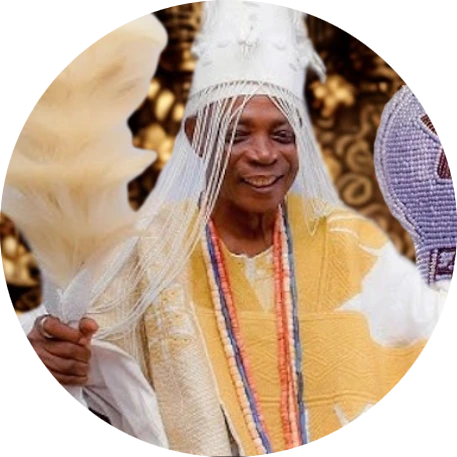
The history of the Olubadan (meaning “Lord of Ibadan”) of Ibadanland is a rich and intricate narrative intertwined with the development of Ibadan, one of the largest cities in Nigeria. The title of Olubadan is a relatively recent institution, dating back to the mid-19th century, reflecting the evolution of Ibadan from a war camp to a major urban centre.
Ibadan was founded in 1829 as a military camp for warriors from different Yoruba factions, including Ife, Ijebu, and Oyo. It quickly grew into a significant military and trading hub. Initially, Ibadan was governed by a military aristocracy, with no centralized monarchy. Leadership was collective, based on the seniority of war chiefs known as “Aare Ona Kakanfo” (the commander of the army) and other military leaders.
Transition to Monarchical System: The title of Olubadan was established in the 1850s to bring more centralized and stable governance to the rapidly growing city. The title means “Lord of Ibadan” and was created to integrate various chiefs and align them under one paramount ruler. The first recognised Olubadan was Baale Maye Okunade in 1850. The term “Baale” was initially used for the head of the town before evolving into “Olubadan,” reflecting the city’s transition to a more structured monarchical system.
The Olubadan’s succession process is distinctive due to its hierarchical structure. The system consists of two lines: the Otun and the Balogun lines, each with 22 and 23 chieftaincy titles, respectively. Succession to the throne follows a stepwise ascension through these ranks, ensuring that the most senior chief becomes the next Olubadan.
Role in Contemporary Society: The Olubadan remains a central figure in Ibadan’s sociopolitical and cultural life. While the role is largely ceremonial today, the Olubadan has significant influence in maintaining cultural traditions, resolving disputes, and acting as a unifying figure for the Yoruba people. The Olubadan is recognized both within Nigeria and internationally as a symbol of Yoruba heritage and leadership. The title has seen various holders who have contributed to the stability and development of Ibadan.
As of the latest updates, H.I.M. Oba Akinloye Olalere Owolabi Olakulehin (Ige Olakulehin I), who ascended the throne on 12 July 2024, is the current Olubadan. His reign, like those before him, is marked by efforts to preserve Ibadan’s cultural heritage while navigating the challenges of a modern urban centre.
The history of the Olubadan of Ibadanland is a testament to the adaptability and resilience of the Yoruba people, reflecting their ability to blend tradition with the demands of contemporary governance.
Anthem of Ibadanland:
Ibadan Anthem Audio
Anthem of Ibadanland:
| Ibadanland Anthem | Egbe |
|---|---|
| 1. Ibadan Ilu ori Oke Ilu Ibukun Oluwa K’oluwa se o nibukun Fun onile at’alejo | Egbe: E ho e yo k’e sig be ‘rin Ogo f’olorun wa l’orun Ibukun ti Obangiji Wa pelu re wo Ibadan |
| 2. Ibadan ilu to ngbajeji Ti ko si gbagbe omo re K’ife ara ko wa nibe Fun onile at’alejo | Egbe: E ho e yo k’e si ‘rin etc: |
| 3. Ibadan ilu jagunjagun Awon toso d’ilu nla Awa omo re ko ni je K’ola ati ogo won run | Egbe: E ho e yo k’e si ‘rin etc: |
| 4. Mo wo lati ori oke Bi ewa re ti dara to B’odo re ko tile tobi Sibe o la Ibadan ja | Egbe: E ho e yo k’e si ‘rin etc: |
| 5. Ibadan Ilu ori oke K’oluwa se o ni bukun Ki gbogbo ‘joye inu re Je elemi gigun fun, wa | Egbe: E ho e yo k’e si ‘rin etc: |
Ibadan Pledge Audio
Ibadanland Pledge
Ilu mi, ilu mi, ilu Ibadan
O dara, o lewa, ilu Totobi
kosibi kibi ti mo le wa lori ‘le aiye
Ti mo le gbagbe ilu Ibadan.
